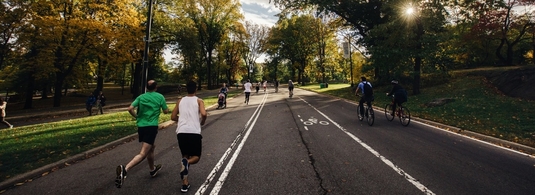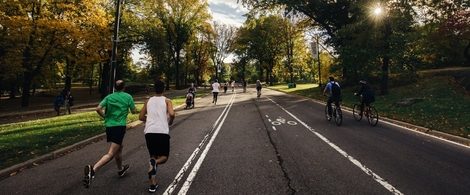Wellbeing Essentials: Exercise
- 15 May 2024
- Wellbeing and Mental Health
- Comments : 0
Wellbeing Essentials: Exercise
Thanks for returning for Part 3 of our 6-part special “What Everybody Should Know About Wellbeing”. Today, we’re discussing exercise!
Getting regular exercise is important for good physical and mental health. Not only does regular exercise help you manage your weight and reduce your risk of developing diseases, it can help prevent and treat mental health problems.
Exercise boosts your wellbeing and mood whilst reducing stress. When you exercise, your body releases feel-good brain chemicals called endorphins.
These neurotransmitters, namely serotonin, dopamine, and norepinephrine, reduce stress, relieve pain and regulate mood.
We think that the mind and body are separate. But what you do with your body can have a powerful effect on your mental wellbeing.
Mental wellbeing means feeling good – both about yourself and about the world around you. It means being able to get on with life in the way you want.
Evidence shows that there is a link between being physically active and good mental wellbeing.
(Source: NHS)
How much exercise do I need to do?
Current recommendations are that the average adult should do between 75 and 150 minutes of exercise a week. This can be any activity that gets your heart rate up and causes you to breathe faster. A brisk walk, a game of tennis, swimming, riding a bike – the list goes on! (Source: UK Government – exercise)
Keen to start exercising?
If so, you might be wondering what your next steps are.
One of the first things to decide is what exercise interests you. Have a think about what you would enjoy. Do you want the solitude of jogging or the excitement of a team sport? You can always try a few things and see what you enjoy most!
How beneficial are different types of exercise?
All forms of exercise are beneficial, but in terms of keeping you fit, this is an average of what a 60kg person burns in 30 minutes
- Fast walking (4 mph): 150 calories
- Running (6 mph): 300 calories
- Aerobic dancing: 195 calories
- Tennis (singles): 240 calories
- Swimming (slow freestyle): 240 calories
- Cycling (12-14 mph): 240 calories
Been a while since you’ve exercised?
If you feel out of shape, you’re recovering from injury, or if you’re worried about an existing condition, see your GP before you start a new exercise program. Starting off walking is often the best way to get back into shape. It’s low impact – and it’s free!
Remember: small changes = big results!
Getting into the mindset that exercise is a reward is essential. It makes you feel better, reduces stress and improves your self-esteem.
It’s time to take your wellbeing and health into your own hands – get out there and enjoy your exercise!
Further resources:
See the guide from Mind: How to Improve your Wellbeing through Physical Activity and Sport
For more information on exercise and mental health, see the blogs that we shared last week for Mental Health Awareness Week. A particularly relevant one is 5 Essentials for Your Mental Health Toolkit





